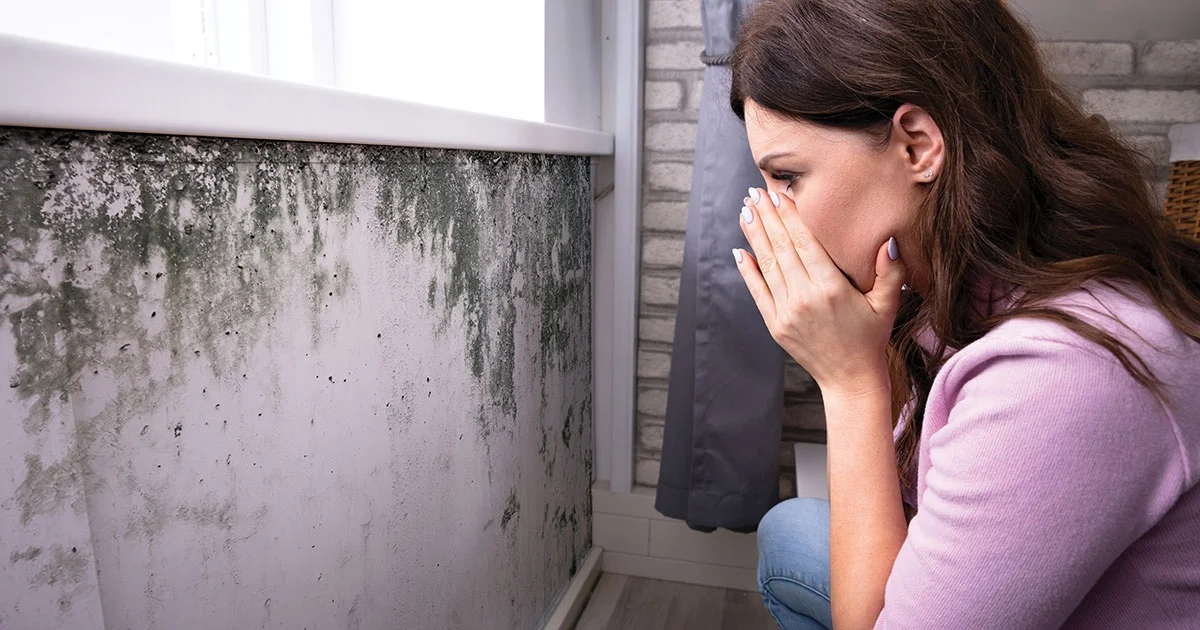Mold often hides quietly in damp corners, crawl spaces, or behind walls, making it one of the most underestimated health threats inside a home. While many people associate mold with allergies, musty odors, and visible stains, far fewer understand its deeper dangers. The question many homeowners now ask is: can mold cause cancer or not? Research shows that certain molds release mycotoxins, chemical byproducts that can affect the respiratory system, weaken immunity, and contribute to long-term health concerns. Although science is still exploring the exact cancer connection, the risk is real enough to warrant serious attention.
This article will uncover the hidden truth about mold and its potential cancer risks, while also addressing black mold health effects, mold exposure symptoms, and the dangers of toxic household mold. We’ll also explore prevention strategies, how professional mold inspection services can protect families, and what every homeowner should know about remediation. By the end, you’ll have the knowledge to protect your home, safeguard your health, and separate myths from facts about mold dangers.
Can Mold Cause Cancer? What Science Really Says
Mold is a type of fungus that thrives in moist environments, feeding on organic materials like wood, drywall, or fabric. Some species produce mycotoxins, toxic compounds that, according to the World Health Organization (WHO), can have harmful effects when inhaled or ingested. While direct links between mold and cancer are still under investigation, prolonged exposure to toxic mold can weaken the immune system, creating conditions where cancer may become more likely.
GCR Builders LLC provides trusted mold remediation services to eliminate these risks at their root.
For instance, aflatoxins, a group of mycotoxins produced by Aspergillus mold, are well-documented carcinogens linked to liver cancer. Though not all household molds produce aflatoxins, the uncertainty around mold exposure makes prevention essential.
What Are the Hidden Mold Health Risks?
Even if mold doesn’t directly trigger cancer, its effects on the body are significant. Mold spores are microscopic, easily inhaled, and can lead to a wide range of symptoms, especially in children, seniors, or those with weakened immune systems.
Common mold exposure symptoms include:
-
Chronic coughing or wheezing
-
Sinus congestion and headaches
-
Skin irritation or unexplained rashes
-
Fatigue and brain fog
-
Aggravation of asthma or allergies
Over time, unchecked exposure increases the body’s toxic burden. This raises concerns about mold and cancer risk, as prolonged immune system stress is a known contributor to many chronic diseases.
Black Mold Health Effects: Why It Gets the Worst Reputation
Black mold (Stachybotrys chartarum) is notorious for producing strong mycotoxins. Though not every black mold colony is toxic, the potential dangers can’t be ignored.
Health experts link black mold exposure to:
-
Severe respiratory irritation
-
Neurological effects such as memory problems or dizziness
-
Increased risk of chronic infections
While scientific studies stop short of saying black mold causes cancer, the consistent evidence of its toxicity makes professional removal critical. Homeowners should never attempt DIY cleanup of widespread black mold infestations.
Myths vs Facts: Can Mold Really Cause Cancer?
There’s a lot of misinformation online about mold and cancer. Here are key distinctions:
Myth: All molds are cancer-causing.
Fact: Only certain molds produce carcinogenic mycotoxins, but all molds can impact health.
Myth: If mold isn’t visible, it isn’t harmful.
Fact: Hidden mold behind walls or under flooring still releases spores and toxins.
Myth: Bleach alone removes mold permanently.
Fact: Bleach may kill surface growth, but it doesn’t address deep structural contamination.
By understanding these differences, homeowners can make informed decisions about mold remediation and cancer prevention mold strategies.
How to Protect Your Home from Mold Dangers
Keeping mold at bay requires a mix of proactive habits and professional help.
Steps to reduce household mold dangers:
-
Control indoor humidity (keep it below 50%).
-
Use dehumidifiers in basements and crawl spaces.
-
Repair plumbing leaks and roof damage promptly.
-
Ensure proper ventilation in bathrooms and kitchens.
-
Schedule professional mold inspection services if you suspect hidden growth.
If mold is detected, hiring experts ensures safe removal and prevents regrowth. Attempting DIY cleanup often spreads spores, worsening exposure.
Mold Remediation and Health: Professional Insights
Professional remediation teams use specialized equipment, containment barriers, and HEPA filtration to safely eliminate mold. More importantly, they address the root cause—moisture intrusion, so mold cannot return. Experts also conduct air quality testing to confirm the environment is safe after cleanup.
For families concerned about toxic mold dangers, investing in remediation isn’t just about property, it’s about protecting long-term health. In fact, doctors often recommend testing living spaces when patients present with unexplained respiratory or immune-related issues.
FAQs About Mold and Cancer
Can mold cause cancer directly?
Certain molds produce mycotoxins like aflatoxins, which are proven carcinogens. However, most household molds contribute indirectly by weakening immunity.
What are the first signs of mold exposure symptoms?
Early signs include coughing, sneezing, nasal congestion, headaches, and skin irritation. Long-term exposure can worsen respiratory issues.
Is black mold the most dangerous?
Black mold has one of the worst reputations due to strong mycotoxins, but any unchecked mold can harm health.
How can mold inspection services help prevent health issues?
Inspections detect hidden mold colonies early, ensuring proper remediation and reducing risks of toxic exposure.
What’s the best way to prevent mold and cancer risk?
Maintain dry indoor spaces, repair leaks quickly, and schedule professional remediation when necessary.
Final Thoughts
While the science on whether mold directly causes cancer is still evolving, the evidence is clear: mold exposure poses serious health risks that no homeowner should ignore. From aggravating respiratory conditions to potentially contributing to long-term immune stress, the dangers are real. Protecting your family starts with awareness, prevention, and timely professional help. Taking mold seriously today could safeguard your health tomorrow.
Need expert mold remediation? Trust GCR Builders LLC for reliable solutions backed by proven experience






